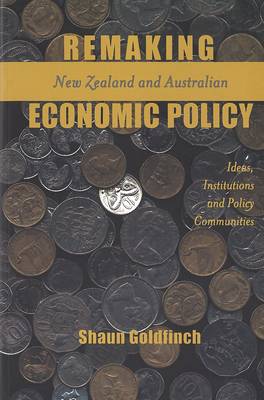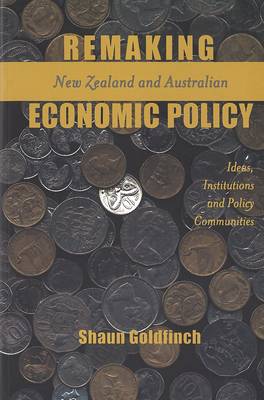
- Retrait gratuit dans votre magasin Club
- 7.000.000 titres dans notre catalogue
- Payer en toute sécurité
- Toujours un magasin près de chez vous
- Retrait gratuit dans votre magasin Club
- 7.000.0000 titres dans notre catalogue
- Payer en toute sécurité
- Toujours un magasin près de chez vous
Remaking New Zealand and Australian Economic Policy
Ideas, Institutions and Policy Communities
Shaun GoldfinchDescription
During the 1980s and early 1990s, Australia and New Zealand extensively deregulated their economies to create two of the most open markets in the industrialized world. Drawing on interviews with more than 180 leading policymakers in Australia and New Zealand--including former prime ministers, ministers of finance, treasurers, and public servants--Shaun Goldfinch analyzes the factors that made the deregulation process different in each country.
Describing specific policies--including liberalization of financial and capital markets, lowering of trade barriers, the floating of the exchange rate, and privatization--he compares the "crash-through" approach that characterized reform in New Zealand with the "bargained consensus" that underpinned change in Australia. In Australia, influences on policy were relatively diffuse and implementations open and decentralized. New Zealand's more centralized government structure resulted in a concentration of influence and less deliberation. He contrasts rapid and gradual change, arguing that the latter may yield better policy results and prevent political instability.
Shedding new light on the economic policymaking process, including the role of economic ideas, institutions, and policy elites, this book will appeal to both students and professionals in interested in public policy, comparative politics, and economics.
Spécifications
Parties prenantes
- Auteur(s) :
- Editeur:
Contenu
- Nombre de pages :
- 296
- Langue:
- Anglais
Caractéristiques
- EAN:
- 9780878408467
- Date de parution :
- 24-01-01
- Format:
- Livre broché
- Format numérique:
- Trade paperback (VS)
- Dimensions :
- 155 mm x 235 mm
- Poids :
- 471 g

Les avis
Nous publions uniquement les avis qui respectent les conditions requises. Consultez nos conditions pour les avis.






